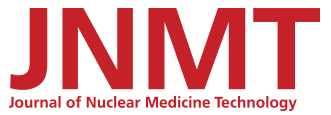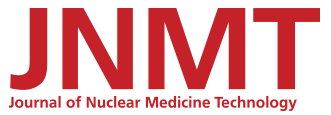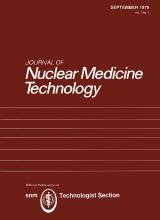Abstract
Nuclear Medicine Technologists, under the direction of physicians licensed to possess radioactive materials, utilize radionuclides and radiopharmaceuticals to perform or assist in the performance of diagnostic examinations—including radionuclidic imaging of organs and organ systems of patients, dynamic studies, assays of body fluids and tissues, and radioassays. These responsibilities require appropriate knowledge of the field of Nuclear Medicine Technology, and those aspects of chemistry, physics, mathematics, and the biomedical sciences that relate to Nuclear Medicine Technology and its growth. Technologists perform studies to evaluate and standardize new or improved methods and equipment for use in Nuclear Medicine Laboratories and Clinics. They also assist the physician in therapeutic procedures using radionuclides. Nuclear Medicine Technologists transmit findings of studies, tests, and examinations to Nuclear Medicine Physicians, who are responsible for the care of the patient. They also participate in medical research. All duties and responsibilities are assigned by Nuclear Medicine Physicians.
(Editor’s note: The scope of practice of Nuclear Medicine Technology varies widely across the country. This is most probably due to the varied backgrounds of Technologists and Nuclear Medicine Physicians—and the fact that essentials for educational programs in Nuclear Medicine Technology provide for different types of structured education routes into the profession. Because of this variation, and hence some confusion, members of the Technologist Section requested the Section to develop position (or job) descriptions to define the scope of practice in a more uniform manner. These descriptions are intended to be guidelines for members and others to use and modify as they see fit for their purposes. The descriptions were written to reflect the broadest scope of practice—with knowledge of the great range of duties and the understanding that modification would be necessary in many instances.)







